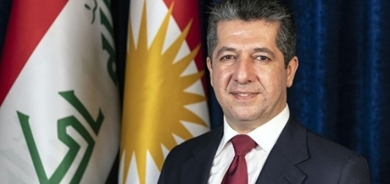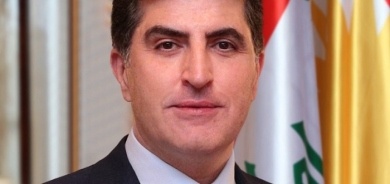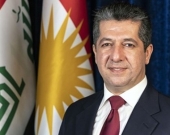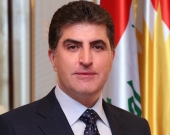Obama lays out climate action plan
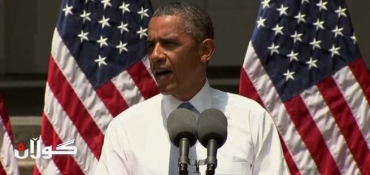
He also unveiled plans for an expansion of renewable energy projects, improved flood resilience and calls for an international climate deal.
Administration officials had earlier rejected the idea of a "carbon tax".
President Obama pledged in his inaugural address in January to act on climate change in his second term.
'Moral obligation'
Speaking at Georgetown University in Washington DC, President Obama said: "As a president, as a father and as an American, I am here to say we need to act."
He said he refused to condemn future generations to a "planet that can't fix itself" and pledged to "lead the world in a co-ordinated assault on a changing climate".
A statement released by the White House said: "While no single step can reverse the effects of climate change, we have a moral obligation to future generations to leave them a planet that is not polluted and damaged."
It added climate change posed an immediate threat, with the 12 hottest years on record all occurring in the past 15 years.
Most of the president's agenda can be executed without congressional approval, but some issues are likely to face opposition.
The top Republican in Congress, House Speaker John Boehner, has called the plans "absolutely crazy".
On Tuesday, the president reaffirmed his 2009 commitment to reducing greenhouse gas emissions by 17% below 2005 levels by the end of the decade.
Critics say these reductions are too modest, and less aggressive than European Union targets.
The plan includes the first-ever limits on carbon emissions from new and existing power plants. These are the single biggest source of carbon pollution, accounting for a third of US greenhouse gas emissions and 40% of its carbon output.
But it remains unclear how strict these limits will be.
Last year, the Environmental Protection Agency proposed regulating emissions from new power plants, but that plan was delayed.
Seven US governors have asked President Obama to abandon this proposal, which they say would "effectively shutter" coal-fired power plants and prevent the construction of new ones.
Don Stewart, a spokesman for Senate Minority Leader Mitch McConnell, said imposing carbon rules on power plants amounted to a national energy tax.
"Will the president explain the massive costs to American jobs? Will the president explain how low-income Americans would pay for their new, higher utility bills?" he told the AP news agency.
President Obama also called for the US to stop supporting new coal-fired plants abroad.
His plan would exempt plants in the poorest nations if the cleanest technology available in those countries is being used.
Pipeline challenge
Obama: "We don't have time for a meeting of the Flat Earth Society"
President Obama called for more solar and wind energy projects on public lands, with the aim of powering the equivalent of six million homes by 2020. He also set higher goals for renewable energy at federal housing projects.
In addition, he announced $8bn (£5bn) in federal loan guarantees to spur investment in green technologies.
President Obama also broached the subject of the $7bn, 1,700 mile (2,700km) Keystone XL pipeline, meant to bring heavy crude from the tar sands of Alberta, Canada to the refineries of Texas, saying it should only proceed if it was in the nation's interest.
"The net effects of the pipeline's impact on the climate will be absolutely critical to deciding whether this project goes forward," he said.
Backed by industry and labour unions but staunchly opposed by green campaigners, Keystone XL has turned into one of the biggest environmental challenges of the president's time in office.
Saleemul Huq, senior fellow at the International Institute for Environment and Development, said the plan was "too little too late".
"While it is good to see a leader of the world's richest country and biggest cumulative polluter finally promise to take actions," he said, "after over a decade of refusal to do so, the problem has become much bigger while the US was ignoring it."
By Paul Rincon Science editor, BBC News website



